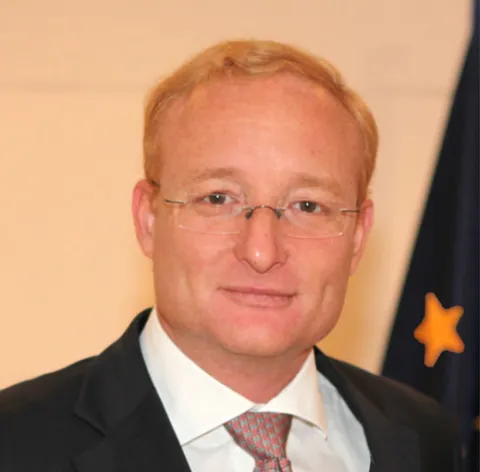EPO: consultation on Strategic Plan 2023, social tensions remain
January 27, 2019
The EPO has opened a public consultation to get input for its Strategic Plan 2023, which will outline the vision for the Office. ‘Its implementation will ensure that we continue to provide high-quality patent services that encourage innovation and contribute to growth.’
Input can be sent in on 15 March 2019 at the latest by filling out the contribution template. The consultation is focused on three topics: 1) Evolution of the patent system and future challenges; 2) Delivering high quality products and services; 3) Social responsibility and transparency. The final proposal for the Strategic Plan 2023 will be submitted to the Administrative Council for adoption in June 2019 and the approved version will be published on the EPO website.

The consultation is apparently not about internal social issues, although there are many signs (reported about by this blog here and here) that despite changes for the better, the climate of distrust and fear has not disappeared since António Campinos succeeded Benoît Battistelli as EPO president last year.
As JUVE Patent reported in an article about the EPO last week: ‘The fact no insiders and even some external patent attorneys (…) did not want to be named indicates the depth of mistrust towards EPO management in some parts of the workforce.’ According to JUVE Patent, criticism ‘is focused particularly on Principal Director for Human Resources, Elodie Bergot. She is regarded as a key figure in the long-running dispute between the old EPO leadership and parts of the workforce (…). “As long as she is in office, everyone is afraid to express themselves publicly and nothing changes in the atmosphere of the house”, JUVE Patent quoted an insider. It also wrote that the three new vice presidents Nellie Simon, Christoph Ernst and Stephen Rowan, who were elected last October and started in office on 1 January 2019, might be able to change things for the better.
A letter from the Central Staff Committee, in the meantime, shows that EPO president Campinos’ listening to the staff has certainly not always led to improvements for EPO employees. The CSC sent a letter to Campinos last Friday about the ‘very inconsiderate treatment’ of several colleagues and about 'chaotic' HR management. Staff are seen as, and treated like a faceless commodity – just like pawns on a check-board.

We are taken aback by the total absence of “Fingerspitzengefühl” in the approach to the colleagues. The heavy-handed style of communication merely breeds distress and demotivation, and we have been confronted with several of our colleagues in tears.
You may also like















Shame on Campinos
Many thanks for reporting to the Public what happens at EPO. EPO HR practices have indeed not changed an inch since arrival of Mr Campinos (he is said to have absolutely no empathy towards "joe-average" staff members' issues behind closed doors and he only wants to be seen as a "friendly and accessible chef" in Public). He lets Bergot run the shop and she does it with her usual level of incompetence. Forced transfers were one of the key elements found contributing to the dangerous HR organisation at France Telecom (an illustration of the duo Battistelli - Bergot's concrete achievements https://www.politico.eu/article/labor-relations-turn-toxic-in-the-european-patent-office/). Bergot is responsible for all this. Campinos finds the "new career" (which is a nightmare for staff as it not only does not reward staff for the efforts done but also attributes unhealthy incentives (focussing too much on quantity vs quality). He has not done anything concrete about the quality of the work done except pretending that he will do something soon. He has done nothing regarding Els Hardon and Laurent Prunier who are still held hostages for wrong-doings they have not committed. HE DID NOTHING since he arrived, full stop. One may expect that a new drama will for sure occur e.g. new suicide. The question is not if but when since indeed the fear factor remains the same and it is still coupled to far too high production pressure. This is depressing.
MaxDrei
Being an optimist, I seize on these words: "... the three new vice presidents Nellie Simon, Christoph Ernst and Stephen Rowan, who were elected last October and started in office on 1 January 2019, might be able to change things for the better." If I understand it right, Ms Simon will be Bergot's supervisor. Simon studied at the LSE. Has she got the strength to set Bergot straight? Rowan is a Brit and Ernst is a German lawyer. Suppose all three new VP's have respect for the Rule of Law. Suppose that President Campinos has been biding his time, gathering his forces and that he regards his three new VP's as "the cavalry" which will enable him to act in the cause of restoring decency within the rogue State of Eponia, and patching up its reputation in the outside world. Can we realistically hope along those lines?
Attentive Observer
Dear Max Drei, I appreciate your optimism, but I think that it is a bit out of place here. You hope that Ms Simon will put things straight, especially with Ms Bergot. When it comes to the other VP you hope that they will abide by the rule of law. But you certainly know that the law is there to be interpreted. Will they go for an interpretation which will bring social peace or will they simply continue to apply the existing regime? It is a bit early to decide which way they will take, but I fear that the status quo is more likely, as it needs the least efforts. Why would Mr Ernst start going over board at the end of his career? He is there to make a bit of money and that is it. One could also consider that the new President could want the new VP do the “dirty” job to curtail the misbehaviour of Ms Bergot, and of all the other minions brought into the EPO by the former president. If this should be the case, he is not the right man at the right place. It is primarily his duty to give the whole scene a shakeup, not to have other people under his authority to do this. It is a question of credibility. As long as the whole clique put in place by the would-be Napoleon still occupy the jobs he assigned them, the new President will not gain the confidence of his staff. All the attempts of his trying to have a direct dialogue with staff will remain a fig leaf behind which nothing will really change. Remember also one thing. By granting as quickly as possible, the contracting states have got used to get a lot of annual fees much earlier. I am not sure they will want less, and later. This is one of the vicious legacies of the former head of the EPO literally buying votes in the AC. If there is one aspect on which the contracting states are not prepared to compromise, it is money. Money will always come before social peace. I might be overly pessimistic, but this pessimism is caused by a long time of looking at how things develop at the EPO. I would very much like to be nicely surprised, as hope dies last, but I fear that it will not be the case. Techrights: FINGERS OFF!! I do not want my contributions to be used by somebody like you!